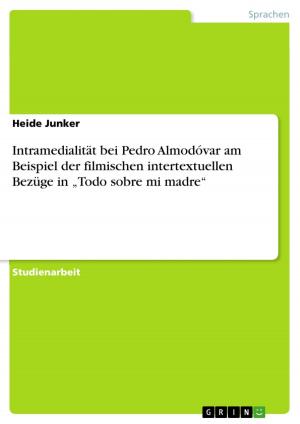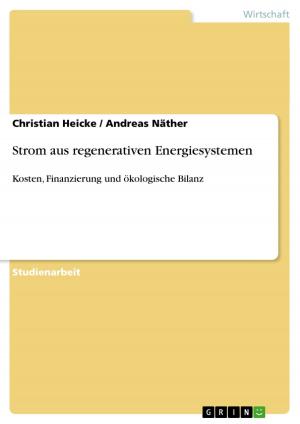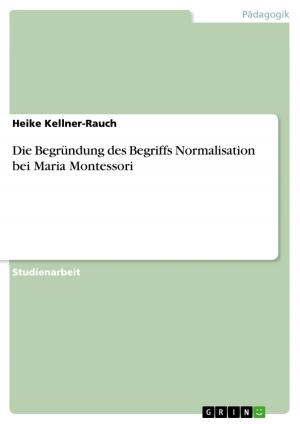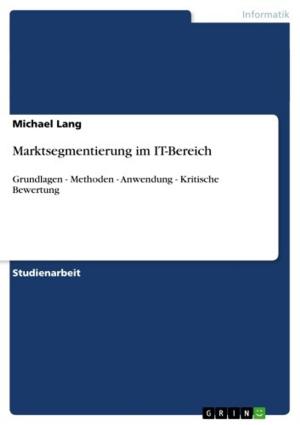The Language Demands of Immersion Teaching from the Teacher's Perspective in German-Speaking Switzerland
Nonfiction, Reference & Language, Language Arts, Linguistics| Author: | Colin Browne | ISBN: | 9783656822844 |
| Publisher: | GRIN Verlag | Publication: | October 24, 2014 |
| Imprint: | GRIN Verlag | Language: | English |
| Author: | Colin Browne |
| ISBN: | 9783656822844 |
| Publisher: | GRIN Verlag |
| Publication: | October 24, 2014 |
| Imprint: | GRIN Verlag |
| Language: | English |
Master's Thesis from the year 2012 in the subject Speech Science / Linguistics, grade: A, University of London (Institute of Education), course: MA TESOL, language: English, abstract: The English immersion programme in the German-speaking part of Switzerland sees various school subjects being taught at upper secondary school level through the medium of English. The aim of this study was to ascertain how the language needs of teachers are currently being met, what language problems teachers have and how future teachers could become more proficient before starting to teach immersively. The aim of this study was to ascertain how the language needs of teachers are currently being met, what language problems teachers have and how future teachers could become more proficient before starting to teach immersively. A qualitative action research study in the form of lesson observations and semi-structured interviews with eight purposefully selected immersion teachers from four different schools produced the following results. Teachers were more or less compelled to decide for themselves what action was required to advance their level and stressed the inadequacy of the Cambridge Proficiency Exam when it came to improving subject-specific and classroom English. The most common language problems cited by immersion teachers encompassed speaking spontaneously and using classroom English. Even though these experienced teachers were now comfortable with their language level, they stressed the need for the following in order to improve teachers' language proficiency before joining the programme: language support not only at the start but also throughout the programme, shadow-teaching opportunities in the Anglosphere, attending specific courses on classroom English, and going on their own immersive language stay extending over several months. Thus, I propose that the educational authorities should adopt a more structured evaluation, testing both general and classroom English and provide consequent training recommendations. In addition, teachers should have access to an English teacher or assistant whom they can contact primarily for proofreading and receiving feedback on lessons.
Colin Browne (BSc(Hons), MA) completed his Bachelor's degree in Meteorology and Mathematics at the University of Reading and Master's degree in Teaching English to Speakers of Other Languages at the University of London's Institute of Education. Since 2005, he has been working as an English Immersion Coach at several upper secondary schools in Cantons Aargau, Thurgau and Zurich.
Master's Thesis from the year 2012 in the subject Speech Science / Linguistics, grade: A, University of London (Institute of Education), course: MA TESOL, language: English, abstract: The English immersion programme in the German-speaking part of Switzerland sees various school subjects being taught at upper secondary school level through the medium of English. The aim of this study was to ascertain how the language needs of teachers are currently being met, what language problems teachers have and how future teachers could become more proficient before starting to teach immersively. The aim of this study was to ascertain how the language needs of teachers are currently being met, what language problems teachers have and how future teachers could become more proficient before starting to teach immersively. A qualitative action research study in the form of lesson observations and semi-structured interviews with eight purposefully selected immersion teachers from four different schools produced the following results. Teachers were more or less compelled to decide for themselves what action was required to advance their level and stressed the inadequacy of the Cambridge Proficiency Exam when it came to improving subject-specific and classroom English. The most common language problems cited by immersion teachers encompassed speaking spontaneously and using classroom English. Even though these experienced teachers were now comfortable with their language level, they stressed the need for the following in order to improve teachers' language proficiency before joining the programme: language support not only at the start but also throughout the programme, shadow-teaching opportunities in the Anglosphere, attending specific courses on classroom English, and going on their own immersive language stay extending over several months. Thus, I propose that the educational authorities should adopt a more structured evaluation, testing both general and classroom English and provide consequent training recommendations. In addition, teachers should have access to an English teacher or assistant whom they can contact primarily for proofreading and receiving feedback on lessons.
Colin Browne (BSc(Hons), MA) completed his Bachelor's degree in Meteorology and Mathematics at the University of Reading and Master's degree in Teaching English to Speakers of Other Languages at the University of London's Institute of Education. Since 2005, he has been working as an English Immersion Coach at several upper secondary schools in Cantons Aargau, Thurgau and Zurich.















